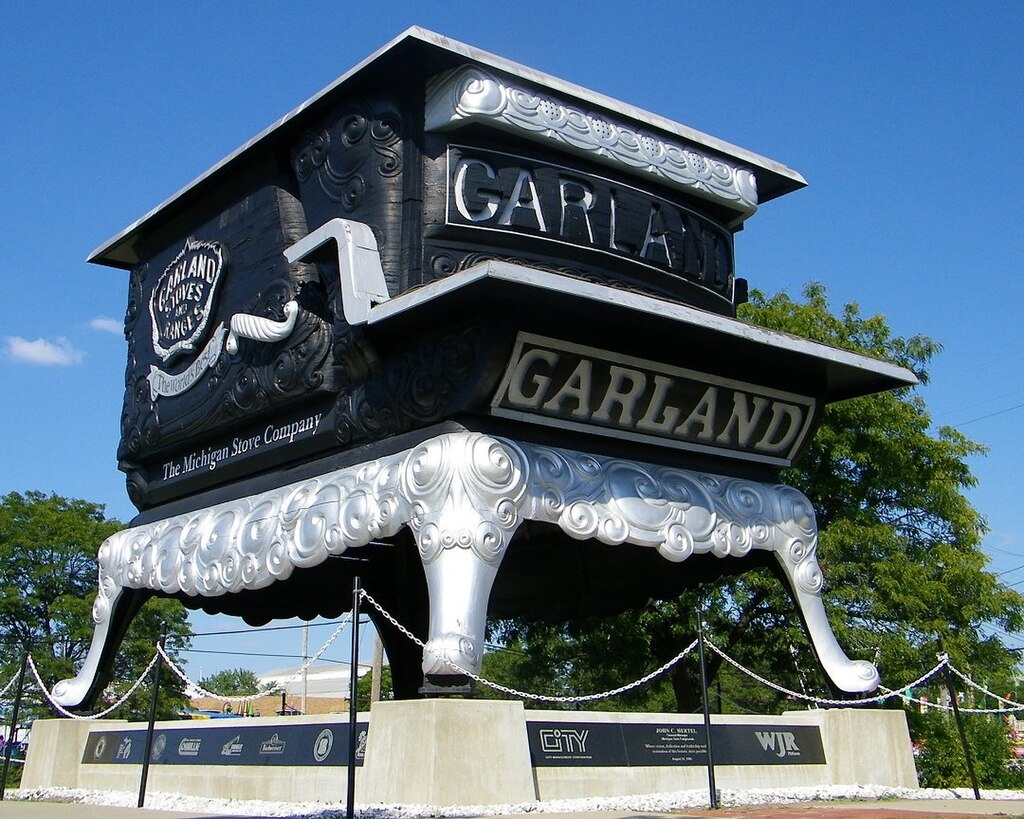Today in 1701, the birthday of Detroit, Michigan.
It’s an area that had been home to the Ojibwe, Ottawa, and Potawatomi, and Mound Builders even earlier.
A French trader and military man chose the site for what he called Fort Pontchartrain du détroit.
In modern times, Detroit is known for its long history making cars for the big US auto companies.
But before it was the Motor City, it was a Stove City.
(So in an alternate universe, Stevie Wonder recorded for Luxury Stove-town Records?)
Stoves were game changers in the mid 19th century.
Instead of trying to cook and heat a household over an open fire, people could regulate the heat.
That meant home cooks could made a wider range of recipes than ever before.
Plus, they could multitask, boiling tea, cooking dinner, baking bread and warming their irons all at once.
Detroit was already was already a national hub for metalwork; the city’s foundries made iron parts for railroads, steamships, farm equipment and more.
When stoves became popular and accessible, the city was ready to ramp up production.
At one point, one out of every 10 stoves being sold in the world was from one of Detroit’s big four stove companies.
Some of these manufacturers are still in business today.
And the history of Detroit stoves had its fans even as the auto industry became Detroit’s signature line of work in the 20th Century.
The Michigan Stove Company decided to advertise their products and promote the Detroit stove industry as a whole by creating a giant wooden replica of a Garland stove to display at the 1893 Columbian Exposition in Chicago.
It was 25 feet tall, 30 feet long and 20 feet wide.
The big wooden stove eventually made its way back to Michigan and was kept on display in a number of locations until 2011, when it was hit by lightning and burned down.
Today in 1897, the birthday of aviation great Amelia Earhart in Atchison, Kansas.
Fun fact: the Library of Congress’s collection includes a set of the famous pilot’s palm prints!
When stoves were the hot new thing (Detroit News)
Exploring Amelia Earhart with Library of Congress Primary Sources (Library of Congress)

